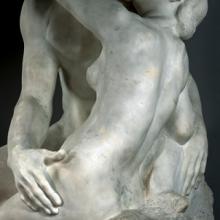harvest
THE STILL, ATTENTIVE, affectionate, at times lamenting, always sagacious, well-defined, occasional poems in This Day, Wendell Berry’s most recent collection, are a magnificent gift to American letters.
For nearly 35 years Berry has kept the Sabbath holy. His practice is either unorthodox or so deeply orthodox that professional religionists may not recognize it. On Sundays Berry walks his Kentucky “home place,” the roughly 125 acres of bottom land in the region his family has farmed for more than 200 years. From the seventh-day silence, solitude, and natural world, Berry has crafted his Sabbath poems.
“Occasional poems” commemorate public events, but here Berry lays quiet markers to remember personal days in the life of one man. He writes in the preface: “though I am happy to think that poetry may be reclaiming its public life, I am equally happy to insist that poetry also has a private life that is more important to it and more necessary to us.”
It's odd that Christians — people who claim to believe that God created the earth, sustains it day by day, and intends to create a new earth — are often so mixed up about sex and food. How long would the earth's inhabitants last without coupling and eating?
And yet most Christian writers right up to the 16th century praised celibacy, sexless marriages, and arduous fasting. Bless Martin Luther for loving his wife (and the beer she brewed), but lots of us still seem to think that good sex and good food — if not actually sinful — are at least pretty low on the religious values hierarchy.
Has it escaped our attention that, according to our most sacred literature, God made a naked male and a naked female, put them in the midst of grain fields and orchards, and told them to multiply?
